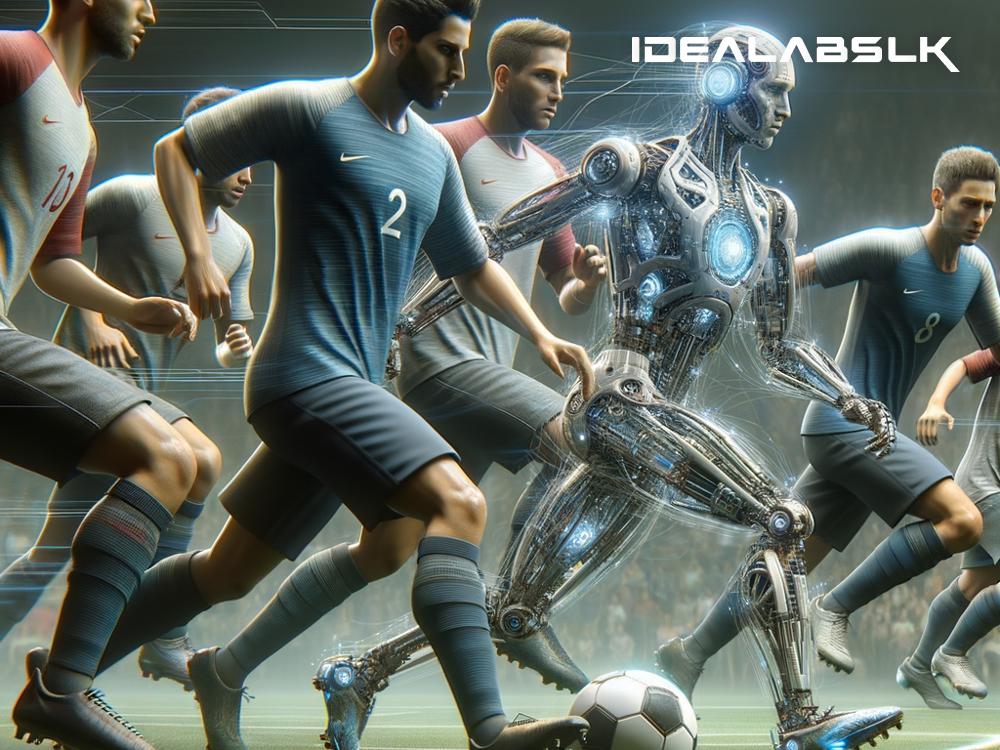AI in Sports Simulation Games: The Future of Realistic Player AI and Adaptive Game Mechanics in 2025
Sports simulation games have come a long way, from the blocky, simplistic representations of sports in the early days of video gaming to the highly detailed and immersive experiences available today. One of the most exciting frontiers in the ongoing evolution of sports games is the implementation of advanced artificial intelligence (AI). As we look ahead to 2025, the integration of realistic player AI and adaptive game mechanics is set to revolutionize how we play and experience sports simulation games. Let's dive into how this future looks.
Realistic Player AI: Bringing Virtual Athletes to Life
The early 2020s have already seen significant improvements in AI that controls virtual athletes, making them react in more lifelike ways during gameplay. By 2025, AI in sports simulation games is expected to take this to an entirely new level. Realistic player AI will be capable of mimicking the behaviors, strategies, and even the playing styles of real-life athletes with astonishing precision. This means that virtual representations of famous sports personalities will not just look like their real-world counterparts but will also play like them.
How is this achieved? It's all about data. By analyzing vast amounts of data from actual games, including player movements, tactics, and decision-making patterns, game developers can train AI systems to replicate these aspects in the game's virtual athletes. Additionally, advancements in machine learning algorithms allow these AI characters to learn and adapt over time, making them even more realistic as they gain 'experience' much like a human player would.
Adaptive Game Mechanics: A Tailored Gaming Experience
But the future of AI in sports simulation games isn't just about making smarter virtual athletes; it's also about creating a more immersive and personalized gaming experience for the player. Adaptive game mechanics refer to the game's ability to adjust itself in real-time based on the player's skill level, preferences, and even emotional state.
Imagine a football simulation game that detects you're struggling to score goals. By 2025, the game could dynamically adjust the difficulty or offer in-game tips, making the experience more enjoyable without breaking the immersion. Alternatively, if the game recognizes you're an experienced player looking for a challenge, it could enhance the AI difficulty of your opponents or present you with unique in-game scenarios to test your skills.
These adaptive mechanics are made possible through AI systems that monitor how you play the game, learning and predicting what adjustments could enhance your enjoyment or present you with the right kind of challenge. This represents a shift from one-size-fits-all gameplay to experiences that are much more tailored to individual players.
The Benefits and Challenges Ahead
The integration of realistic player AI and adaptive game mechanics offers numerous benefits, from more engaging and immersive gameplay to personalized experiences that cater to a wide range of skill levels and player preferences. However, achieving this future also presents challenges.
One major challenge is the computational power required to run such complex AI systems in real-time, especially for games that simulate entire teams of players simultaneously. Developers and console manufacturers are continually working to address this issue, with cloud gaming and increasingly powerful gaming hardware offering potential solutions.
Another challenge is ensuring that the adaptive game mechanics do not diminish the challenge or satisfaction that players feel when mastering a game. Finding the right balance between assistance and challenge is crucial to maintaining the fun and rewarding nature of sports simulation games.
Conclusion
As we look forward to 2025, the future of sports simulation games is undeniably exciting. With advancements in AI, we're set to see virtual athletes that not only look and move like their real-world counterparts but also think and adapt like them. At the same time, adaptive game mechanics promise to make sports simulation games more immersive and enjoyable for players of all skill levels.
The integration of realistic player AI and adaptive game mechanics is not without its challenges, but the potential benefits for players are immense. As we continue to push the boundaries of what's possible in sports simulation games, one thing is clear: the future of gaming is smarter, more realistic, and more personalized than ever before.

